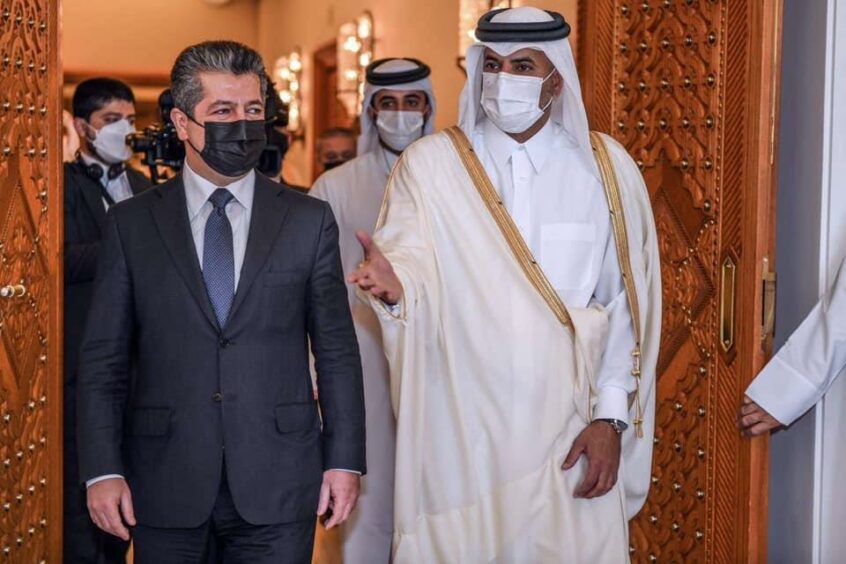
The Kurdistan Regional Government (KRG) has rejected a ruling from the Iraqi Supreme Court on the area’s oil and gas sector.
The court decreed on February 15 that Kurdistan’s oil and gas law was unconstitutional. The law, it said, violated various articles in the Iraqi constitution – singling out 110, 111, 112, 115, 121 and 130.
The Iraqi Ministry of Oil has the right to pursue and nullify contracts struck by KRG with countries and companies. The court ordered the KRG to allow the ministry to audit all contracts in order to determine the region’s share of the general budget, it said.
The KRG described the Supreme Court’s ruling as “unjust, unconstitutional and [it] violates the rights and constitutional authorities of the Kurdistan Region”. The KRG said the decision drew precedent from the Saddam Hussein era regime.
Kurdistan said it would not forfeit its constitutional rights. It will continue to work towards a “constitutional solution” with the federal government. The KRG went on to say it would take “all constitutional, legal, and judicial measures to protect and preserve all contracts made in the oil and gas sector”.
The Iraqi constitution, Kurdistan said, recognised the region under Article 117 while Article 112 “stipulates that oil and gas is not within the exclusive authority of the federal government”.
Article 112 puts the federal government in charge of the oil sector, but with the proviso that revenues be distributed fairly. Furthermore, it says an allotment should be made to those regions that were “unjustly deprived” in the past.
Long-running disputes
Kurdistan passed its oil law in 2007. The federal government rejected the draft but the regional parliament approved it. The KRG said this was within its rights under the constitution.
Baghdad began legal proceedings against Kurdistan in 2012, in a challenge to the region’s rights to independently export crude. The Iraqi oil ministry launched a second court case in 2019.
The Supreme Court combined the two cases in its ruling, Case 59/Federal/2012 and Unified 110/Federal/2019. The KRG said this decision to combine the two was itself a violation of the law.
The federal government cut revenue flows to Kurdistan in 2014. It complained that it had not received its fair share of oil.
Under the 2021 budget, KRG agreed to provide 250,000 barrels per day of crude to the federal government. The KRG exported around 424,000 barrels per day of crude in the first half of 2021. Sales provided revenues of $4.1 billion for the six months, with net revenues of $1.74bn.
Speaking to Energy Voice, Ian Simm, Principal Advisor at consultancy IGM Energy highlighted that the articles of the law and the associated sections of the Iraqi budget have been the cause of regular flare ups between Baghdad and Erbil. This appears set to continue despite the reconciliatory tone of talks between the two in 2021.
When last year’s budget was put forward, more than 110 Iraqi MPs wrote to request that budget article 11 be redrafted to force the KRG to send all production to Somo.
Not budging on budgets
“While the federal government began sending monthly disbursements of around $135mn to the KRG in July, this was well short of the 12.67% of the $89.7bn total Erbil had been due to receive,” he said.
Simm added that this arrangement was predicated on KRG-operated fields producing a minimum of 460,000 bpd. Of this, 250,000 bpd was to be sent to federal oil marketer Somo. However, a final agreement was never reached and Kurdish crude does not appear to have been shipped via Somo, he said.
However, “the spat appears to be having a muted practical impact on firms operating in Iraqi Kurdistan with production, exports and share prices relatively unaffected by this week’s news,” Simm noted.
“Having already retaken the Avanna Dome and Bai Hassan fields and returned them to the North Oil Co. in 2017, and the KRG’s pipeline connecting to the Kirkuk-Ceyhan conduit within Kurdish territory, it is unclear what further steps Baghdad can take to implement its ruling.”
Iraq’s 2022 budget is due to be written up next month following the appointment of a new Iraqi government. While the oil sales bickering continues, Erbil is likely to have a long wait for its 12.67%.
Updated at 4:32 pm with comments from IGM’s Simm.
